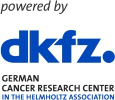Description
Introduction: Non-small cell lung carcinoma (NSCLC), including adenocarcinoma (LUAD) and squamous cell carcinoma (LUSC), is the most common type of lung cancer, with distinct biological signatures. Accurate classification and molecular profiling are crucial for therapeutic guidance. In this study, we employed mass spectrometry (MS)-based proteomics to analyze a large patient cohort and investigate proteomic differences that may influence clinical behavior. High-coverage proteomics also offers insights into immune evasion mechanisms in NSCLC, while immunopeptidomics can identify tumor-associated antigens important for epitope-specific cancer immunotherapies.
Methods: Patient-derived samples were processed using an optimized, semi-automated SP3-beads workflow with a BRAVO pipetting robot. Extracted proteins were digested, and the resulting peptides analyzed by liquid-chromatography tandem-mass spectrometry (LC-MS/MS). Immunopeptidomics was performed using an automated HLA-I and HLA-II antigen enrichment workflow on the BRAVO platform. This adaptable affinity purification method processes various sample types, including fresh frozen tissue from biopsies.
Results: MS analysis of the cohort (LUAD n = 83, LUSC n = 70, tumor-adjacent n = 138) revealed over 10,000 unique proteins. Statistical analysis identified significant differences between LUAD and LUSC, with a potential distinction based on patient’s gender. The immunopeptidomic workflow identified 44,417 unique HLA-I peptides and 27,626 unique HLA-II peptides, providing insights into antigen presentation. Additionally, de novo sequencing, a method that identifies peptide sequences without relying on a reference genome or database, was performed for both HLA-I and HLA-II peptides.
Outlook: The deep proteomic coverage offers insights into the molecular biology of LUAD and LUSC. Immunopeptidomics further promises the identification of tumor-specific antigens for each NSCLC subtype, facilitating the development of epitope-targeted immunotherapies. This work lays the foundation for personalized cancer immunotherapies tailored to individual tumor profiles.
| Preferred type of presentation | Poster Presentation only |
|---|

